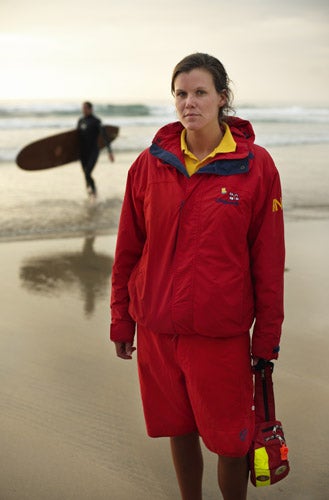First Person: 'I saved a surfer's life'
Sophie Grant-Crookston, 28

Your support helps us to tell the story
From reproductive rights to climate change to Big Tech, The Independent is on the ground when the story is developing. Whether it's investigating the financials of Elon Musk's pro-Trump PAC or producing our latest documentary, 'The A Word', which shines a light on the American women fighting for reproductive rights, we know how important it is to parse out the facts from the messaging.
At such a critical moment in US history, we need reporters on the ground. Your donation allows us to keep sending journalists to speak to both sides of the story.
The Independent is trusted by Americans across the entire political spectrum. And unlike many other quality news outlets, we choose not to lock Americans out of our reporting and analysis with paywalls. We believe quality journalism should be available to everyone, paid for by those who can afford it.
Your support makes all the difference.That day, the sea was big. There was a really big swell, the tide was coming in, and at around 3pm we got a call from the coastguard. Somebody was stuck in a cave, and a member of the public had spotted him.
The caves are very dangerous: if the tide comes in a big swell, it breaks inside them – and if someone is caught up in the water, they're washed in. It's virtually impossible to get back out, especially if your breath has been knocked out of you, or you're tired from being bashed around. A body-boarder had already died in there the year before.
When we were alerted, I didn't feel nervous – on this beach, Perranporth in Cornwall, you kind of deal with it. It's one of the busiest and most popular on the coast, and we get thousands and thousands of visitors. I was born and bred in Cornwall, did a lot of surf life-saving growing up, and became a lifeguard when I was 20. You gain a lot of confidence and experience that way, and an awareness of the sea.
I got picked up by jet-ski, which drove me to the caves and we spotted the guy who was stranded. It turns out he'd jumped off a place called Droskyn Point: surfers do this to avoid having to paddle out from the shore – if they jump off the Point, they end up behind the break. But this guy was inexperienced and shouldn't really have been doing that. He'd been sucked into the cave and because the conditions were really bad, there was no way he could get out. He'd managed to clamber up on to a ledge, and had some cuts.
I put on my fins and the rescue tube – it's a bit like what they carry in Baywatch; you clip people into it, and it keeps them afloat – and the jet-ski dropped me by the cave. The water was really rough – it kept going in to the cave, pushing up and sucking me back, so it was hard for me to get to the ledge. He was quite pleased to see me – he was in shock, but still able to speak. I kept talking to him, and was trying to get up on the ledge but it was too difficult – I was repeatedly pushed off.
Eventually, I decided to take off my fins to help me climb up. I've been on rescues where I've had to do that before – it's dangerous, but sometimes you have to change your plan. At that point, I got sucked back by the waves, nearly into the back of the cave; I just had to wait for the right time, and then I clambered up, getting cut on the rocks, but I made it. I'm 6ft 1in, so he wasn't bigger than me.
The problem was that I had no radio communication and I could no longer see where the jet-ski was because the waves were so big. I didn't know what my next plan was, so I just prepared him. It was going to be a tough swim, I said, but I'd attach him to the rescue tube to keep him buoyant, and if he could try and kick as much as possible, I'd get him through the waves. And then, just in time, our dingy arrived – I was so relieved to see an excellent driver and a great crew. Both the victim and I would have been in a lot of danger, swimming through that sea. We jumped him off the ledge, and made it through the swell to the boat. I felt elated – he was such a lucky guy. That's why people should never swim on a beach without lifeguards.
They awarded me the Bronze Medal for Gallantry – I was only the second lifeguard to receive it, and the first female – but it was a team effort. I didn't suffer any after-effects: if you have to resuscitate someone, or a body is washed up, that's when you'll get recurring dreams. But to rescue someone is a big adrenalin rush. I thrive on things like that – it's why I do my job. When lives are saved, you always take the positives from the experience.
Join our commenting forum
Join thought-provoking conversations, follow other Independent readers and see their replies
Comments